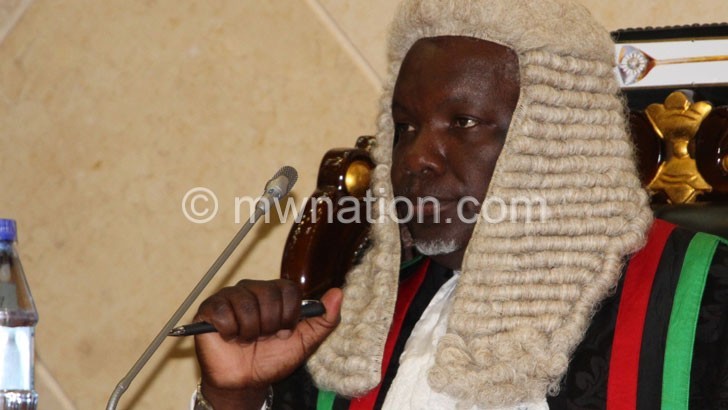MPs retention rate improves
Results of the May 21 2019 Tripartite Elections show that voters retained the highest number of members of Parliament (MPs) in five general elections, a development former Speaker Richard Msowoya says is good for institutional memory.
The official results released by Malawi Electoral Commission (MEC) show that 64 legislators have returned to Parliament, up from 46 in 2014.

In the 2009 General Elections, 47 MPs out of 193 made it back to the National Assembly while 49 did it in 2004 and 61 in the 1999 General Elections.
While those retained include MPs from the 2014 to 2019 term, Parliament has lost long-serving members, among them Vitus Dzoole Mwale, Joseph Njobvuyalema, Watson Makala Ngozo, Patricia Kaliati and Uladi Mussa.

However, the 2019 to 2024 Parliament will still benefit from the experience of Chitipa South MP Werani Chilenga, Rumphi East MP Kamlepo Kalua and Mzimba Solora MP Jacob Hara who will be serving their second terms. The other experienced hands include Lilongwe Msinja South MP Lingson Belekanyama, Mulanje South West MP George Chaponda and Mulanje Central legislator Kondwani Nankhumwa.
Parliament will also see the return of women MPs serving their second or third terms, among them Nkhotakota North East legislator Martha Lunji, Rachel Mazombwe Zulu of Mchinji North and Lillian Patel of Mangochi South.
Of the 64, the Southern Region has contributed the highest retention rate at 32 MPs followed by the Central Region with 25 and eight in the Northern Region. Perhaps the outcome is not surprising as the South has more constituencies compared to the Central and Northern regions.
In an interview yesterday, Msowoya said the number of MPs retained shows an increasing level of competition to be a legislator.
He said: “The retention levels have increased a bit from 46 to 64 this time around. That is good too for institutional memory, knowledge of oversight and general understanding of rule in the House to get the new comers to participate timely in parliamentary issues within and outside the house.”
But Msowoya said while the increase was commendable, Parliament needs to continue with programmes of taking Parliament to the people to empower voters to judge the legislators based on their roles and performance than voting them out on misconceptions about the role as MPs.
He added that it was important that new MPs are oriented quickly so they can participate in debate effectively with a clear understanding of the rules.
Continental think-tank, African Institute for Development Policy (Afidep), has been implementing a Parliament Enhancement Programme with the Malawi Parliament to support Parliament to address capacity gaps and improve operational efficiency.
Under the programme, Afidep has supported training for MPs strategic leadership, oversight functions, effective representation, and legislation while engaging the public on the roles and functions of Parliament.
However, the low number of retained MPs is likely to set the achievements of the programme backwards.
In an interview, Afidep programme manager Martin Phiri said the organisation is happy to see a lightly more MPs making it back and congratulated them all on this feat.
“The programme duration coincided with the election and we had fears about how much disruption the turnover would occasion, but at least there will be some continuity still,” he said.
The 2019 Parliament will pick up where the previous one left off to push for autonomy of the Malawi Parliament through administrative and legislative reforms.





